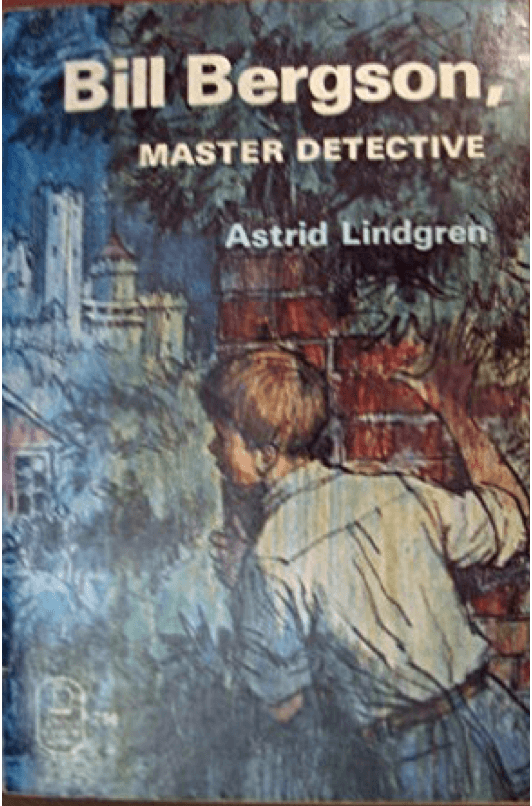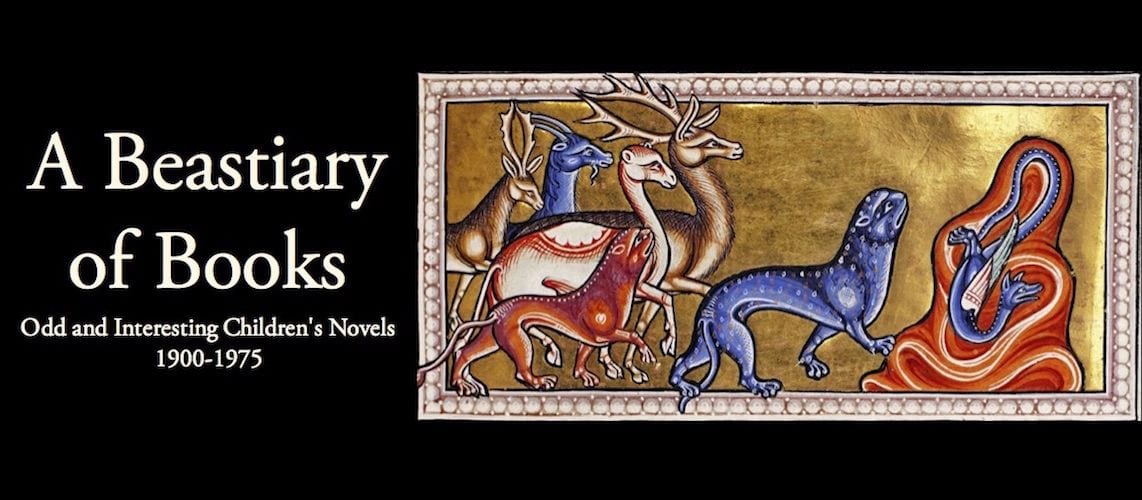 By the author of Pippi Longstocking but in a very different vein, this book shamelessly hits every cliche and yet manages to be one-of-a-kind.
By the author of Pippi Longstocking but in a very different vein, this book shamelessly hits every cliche and yet manages to be one-of-a-kind.
Bill Bergson lives in a safe little village but dreams of catching criminals in the big city. He is steeped in the blood-and-thunder idioms of murder mysteries and gangster movies, and talks like a caricature of Sherlock Holmes when he is imagining his future career as a detective.
Then real live criminals come along — and they’re not just any criminals but jewel thieves. The story treats us to pick-locks, finger-printing of a sleeping suspect, falling-out among thieves, a harrowing escape from underground catacombs, a car-chase, and a shoot-out. Bill Bergsen’s fantasy world becomes reality, but because he is still a vulnerable 13-year-old, he is having the scary thrill-ride of his life.
Adding to the fun, Bill and his friends play games (real childhood play, something unheard-of in modern books about 13 year olds) that are highly entertaining. Particularly interesting is a pretend-feud between two gangs, involving complicated rituals and highly creative sneaking about. This all-in-fun “war” ends up dove-tailing with the main plot in a way that is hilarious and perfect. Leaving aside a few isolated passages of sexism (easily redacted if you are reading aloud), this is a perfect book.
As a bonus, the village is called, in the English translation, Little Town. And the village that Pippi lives in is Villekula — Swedish for Little Town. It is delightful to think of Pippi and Bill inhabiting different incarnations of the same village.
Bill Bergson is sadly long out of print, and used prices are enormous.

“Villa Villekulla” is the name of Pippi’s house, not the little town she lives in. The name is constructed from the two words “villa” (house) and “kulle” (hill). So, “the house on the hill” or even “the house that looks like – is high as – a hill”, but it really functions just as a name of the house that Pippi’s father, the pirate, bought for her to live in.
The movies about Pippi Longstocking were mostly filmed in the medieval town of Visby, Gotland Island (in the Baltic Sea, south-east of Stockholm), so for many Swedes that is where Pippi lives, though the books don’t say anything about where the little town is situated.
The Bill Bergsen (Kalle Blomkvist) books are set in a somewhat bigger town with a railway station and an old castle ruin. (Maybe Växjö in Småland which has two castle ruins!) As far as I can recall, the books never call the town by name, it could be any little town in southern Sweden.
Astrid Lindgren was from Småland county in southern Sweden so most of her countryside books are set in a landscape depicting Småland. The Emil books are situated at the farmstead Katthult, in Lönneberga village outside of the little town Vimmerby, Småland, close to where Astrid herself grew up. Her “little town”-books could be set in any Småland town, the books never say which one and each of her characters seem to live in different towns.
Lindgren lived her adult life in Stockholm, so several books with a city setting are from Stockholm. The TV series about Vi på Saltkråkan (We on Seacrow Island) from 1964 are set in the archipelago outside of Stockholm.
https://en.wikipedia.org/wiki/Astrid_Lindgren
Thanks! I can’t seem to find it, but I could have sworn that in my American editions of the Pippi books, the town itself is referred to as Villekulla, so the house would be a villa named after the town. I’m not sure where I got the idea that “kulla” meant “small.”